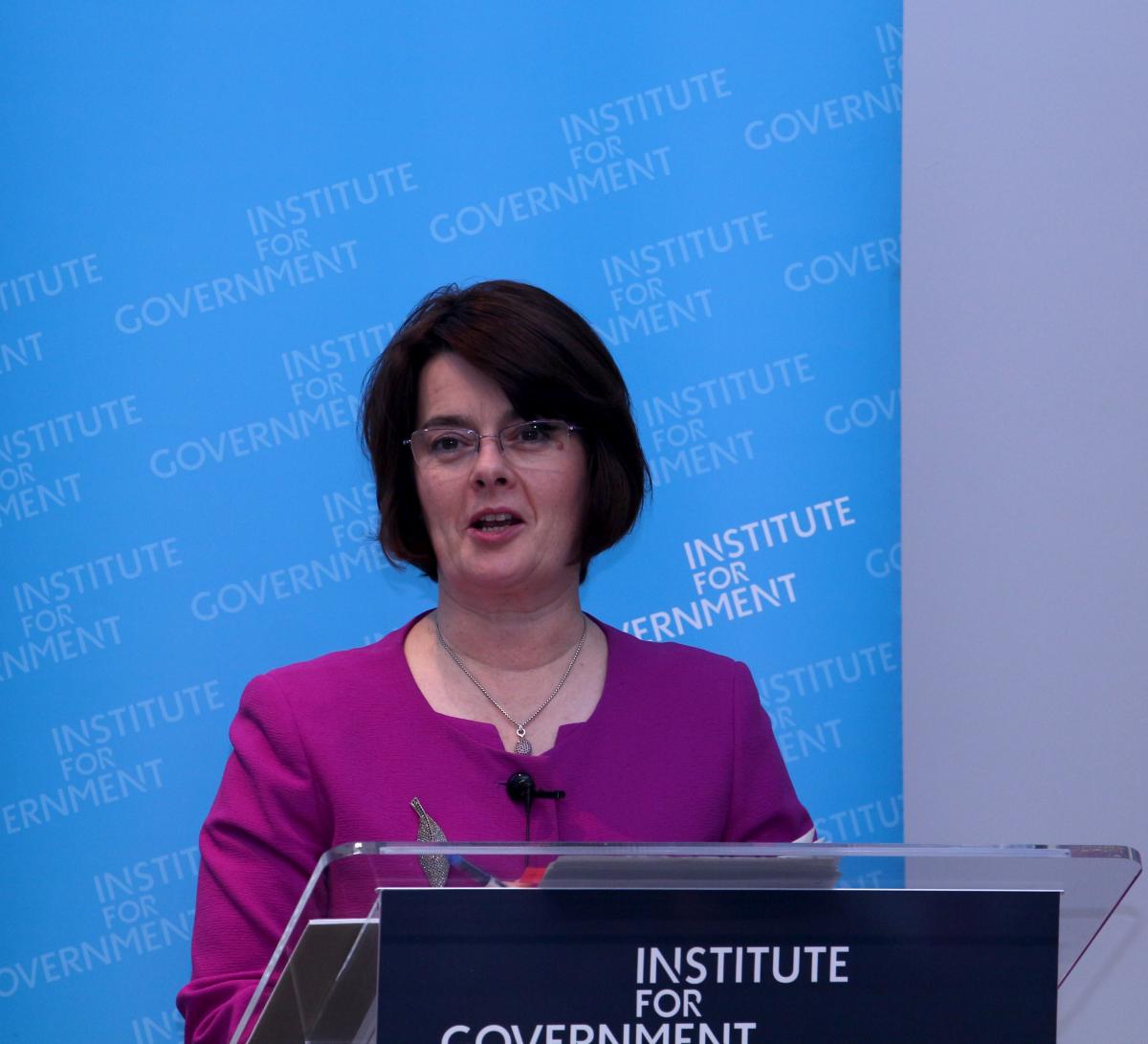An event with Treasury Minister Jane Ellison, to launch our joint report with the CIOT and IFS on tax policy making, emphasised the role of those across the tax system in improving tax policy. Alice Lilly highlights the key points.
Tax is at the heart of political debate and crucial to the economy’s performance, so it is vital to ensure that the systems and processes are in place to make good tax policy. Our joint report with the Chartered Institute of Taxation and the Institute for Fiscal Studies, Better Budgets: Making tax policy better, sets out problems in the current process, from inadequate consultation to the special processes around Budgets, and ten steps toward better tax policy, which speakers from each organisation including Bill Dodwell, President of the CIOT, and Paul Johnson, Director of the IFS, outlined at the launch.
In his Autumn Statement, the Chancellor has already taken the first key step – by announcing that he would revert to one main fiscal event a year.

Responding to the report, Jane Ellison MP, Financial Secretary to the Treasury, stressed the importance of this, calling it a ‘down payment’ on improving the policy making process. She discussed the steps being taken to improve the system under four broad headings, while emphasising the responsibility of those across the tax community to ensure good policy.
1. The need to provide stability, so that taxpayers can plan ahead
A common request in representations to the Treasury, Ellison noted, is for a “steady, predictable tax regime” – something we also heard from many of those we spoke to – and moving to one fiscal event is an important step towards this. In fact, the Financial Secretary suggested, being prepared to make no changes may be for the best – though, she noted, this can sometimes be seen as dithering.
2. Provide a clear direction on tax policy
Highlighting the Corporate and Business Tax Roadmaps as positive examples of the Government setting out a broad plan for an area of tax, Ellison suggested that more could be done on this, and our report sets out some principles for ensuring that roadmaps are as useful as possible. More than this, she acknowledged the importance of starting a conversation on major issues, such as the impact on tax of new forms of employment was important, to “warm the public up to the fact that there is an issue” and spur constructive debate. Preparing the ground for reform – potentially through independent reviews and engaging the public – is another recommendation contained in the report.
3. Build capacity within the Treasury and HMRC
The profiles of the two departments are very different, with interchange between them not as frequent as originally expected. Taking steps to boost this is important, and the Financial Secretary outlined moves further to develop tax expertise in the Treasury: for the first time, the department will sponsor staff to gain professional tax qualifications, with a first cohort beginning training next month.
4. Responsibility lies across the tax community
The Financial Secretary picked up the theme of responsibility across the tax community, noting that the need to look for expertise across the community requires a “genuinely collaborative effort” that the Government needs to help facilitate. But she also challenged those across the system to champion the idea that that the Chancellor need not address every topic (for example, social care) in each fiscal event – and that maintaining the status quo can also be positive.
The key role of Parliament
Our report sets out several suggestions, such as taking oral evidence on Finance Bills and improving coordination between relevant parliamentary committees, which draw on ideas from the Chair of the Treasury Select Committee, Andrew Tyrie MP. Speaking from the floor at the launch, Tyrie noted that the Committee was in the process of developing a method of scoring each Budget measure according to the six principles for tax it drew up in 2011. Ensuring permanent tax expertise in Parliament may also be a step forward, as Tyrie suggested.
As my colleague Jill Rutter noted, the ten steps outlined in the report are intended to “spur a discussion” on an area that is often under-discussed. The move to abolish the Autumn Statement is a crucial step towards better Budgets. While the Government has indicated that it will consider the other recommendations in the report, this week’s event was also a reminder that those across the system have a role to play in ensuring good tax policy.
- Supporting document
- Better_Budgets_report_WEB.pdf (PDF, 604.33 KB)
- Topic
- Policy making